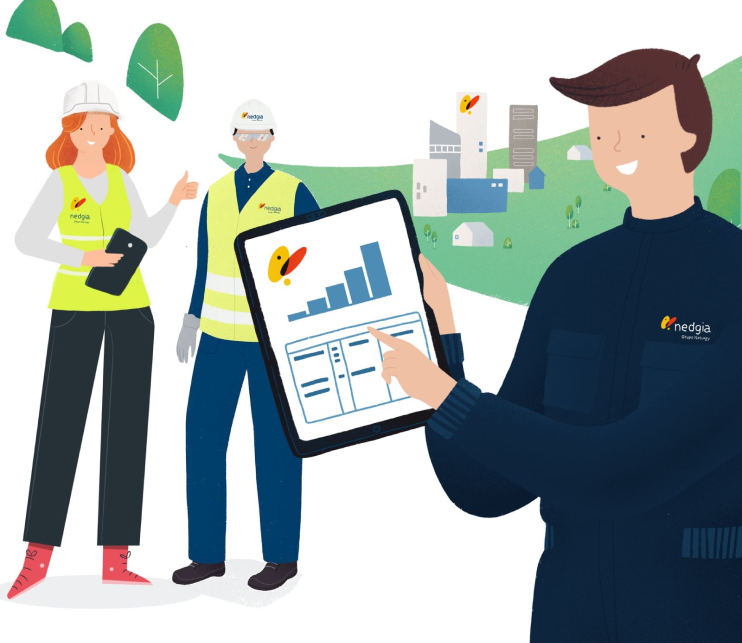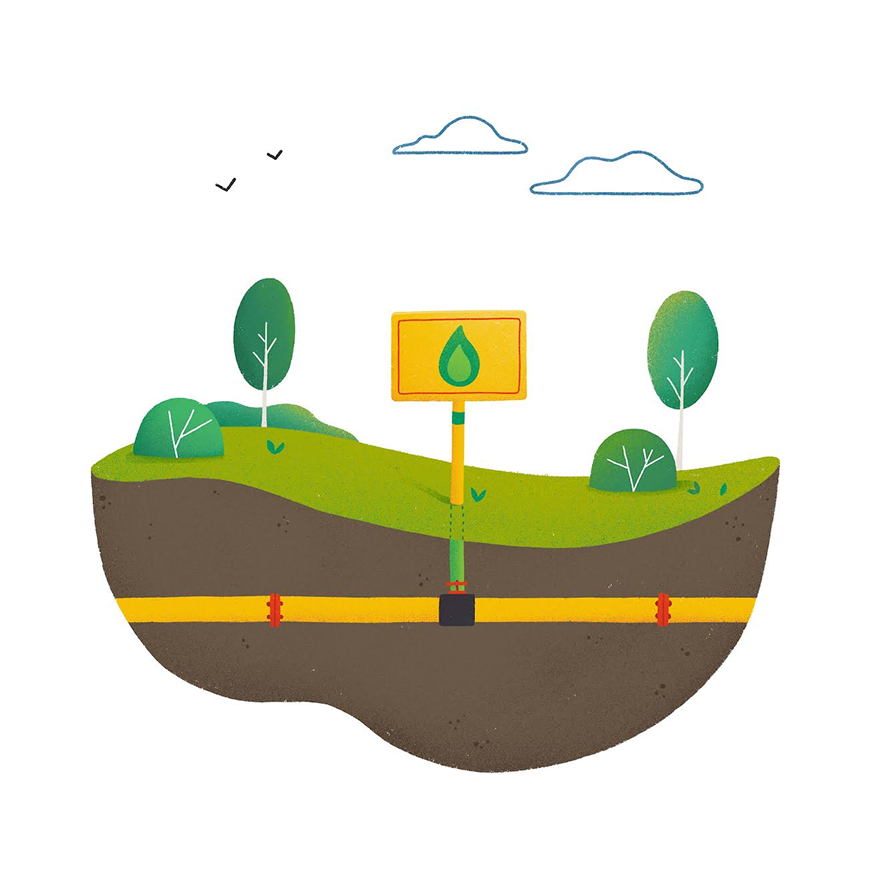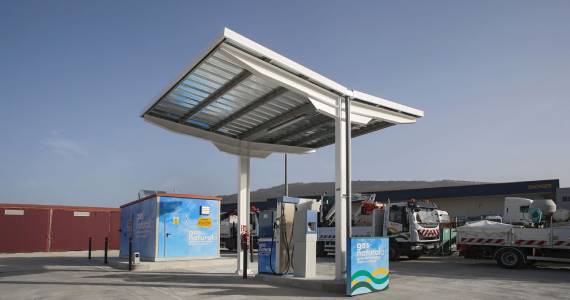We continue to increase the number of new natural gas refuelling facilities that are connected to our network. Today, a new private gas refuelling station opened in the Community of Pamplona where water service vehicles will be able to refuel.
The new station has a double hose pump for refuelling vehicles with compressed natural gas (CNG) so that a light vehicle can fill its tank in 3 minutes and a heavy vehicle in 10 minutes at the same time.
The use of natural gas as a fuel for transport helps improve air quality in the Community of Pamplona as it reduces the emission of nitrous oxides by more than 85% and suspended particles (the main pollutants affecting human health) by almost 100%. Moreover, natural gas engines produce up to 50% less noise emission and vibration than diesel engines.
Beyond the environmental benefits, the Community will save over 31,000 euros (40%) in a single year because natural gas is a very competitive fuel from an economic point of view when compared to diesel and petrol, with savings of between 25% and 50% depending on the solution chosen.
New comprehensive renewable gas project
This new station forms part of a comprehensive project that sees the company collaborating with the Community of Pamplona to generate renewable gas. The Community plans to build two renewable gas or biomethane generation facilities that will inject over 70 GWh of green gas into the network of our subsidiary Nedgia Navarra. The raw material used will be the biogas generated by the digestion of collected urban waste and digestion at the current wastewater treatment plant in Arazuri.
In addition, this renewable gas will also fuel the waste collection service trucks and regional urban transport buses, which will have their own renewable gas refuelling station at their respective installations.
Thanks to the launch of this project, which will generate approximately 70 GWh of renewable gas per year, equivalent to the consumption of 14,000 Spanish homes, 17,000 tonnes of CO2 will no longer be emitted into the atmosphere. That is comparable to planting almost 800,000 trees.
This project represents a huge step forward in our commitment to decarbonisation and the circular economy. It is possible thanks to the strength of the natural gas distribution network which has seen significant investment in recent years so that renewable gas can be distributed today, and hydrogen in the medium term.
An efficient and sustainable commitment
Sustainable mobility with natural gas is the only alternative that offers solutions to all the needs of mobility, from the long-distance transport of goods to urban travel.
In addition, vehicles that use this fuel have the ECO label from the Spanish Directorate-General of Traffic (DGT), allowing them to enjoy a number of benefits including freedom of access to city centres during periods of restricted access owing to episodes of high pollution, as well as tax incentives and tax credits in regulated parking areas, among others.
According to data from GASNAM, the Iberian association that promotes natural gas, renewable gas and hydrogen in land and sea mobility, the natural gas vehicle fleet continues to grow in Spain and ended last year with almost 30,000 vehicles, a 25% increase compared to 2019. The biggest increase was in the private car segment, which grew by 30%, followed by the van segment, which increased by 27% to almost 5,400 vans.
About the Community of Pamplona
Founded in 1982, the Community of Pamplona is a local body comprised of 50 municipalities, including Pamplona city, and it owns the following public services: the water management cycle (supply, sanitation and wastewater purification), waste collection and processing, regional urban transport, the taxi service and the regional waterway park. To manage these services (including the water supply and sanitation service, waste management and the regional waterway park), the Community implements direct management through a commercial enterprise whose capital belongs entirely to the Community and is called “Servicios de la Comarca de Pamplona, Sociedad Anónima”. In 2020 the population of all the municipalities in the Community was over 379,000 inhabitants.







